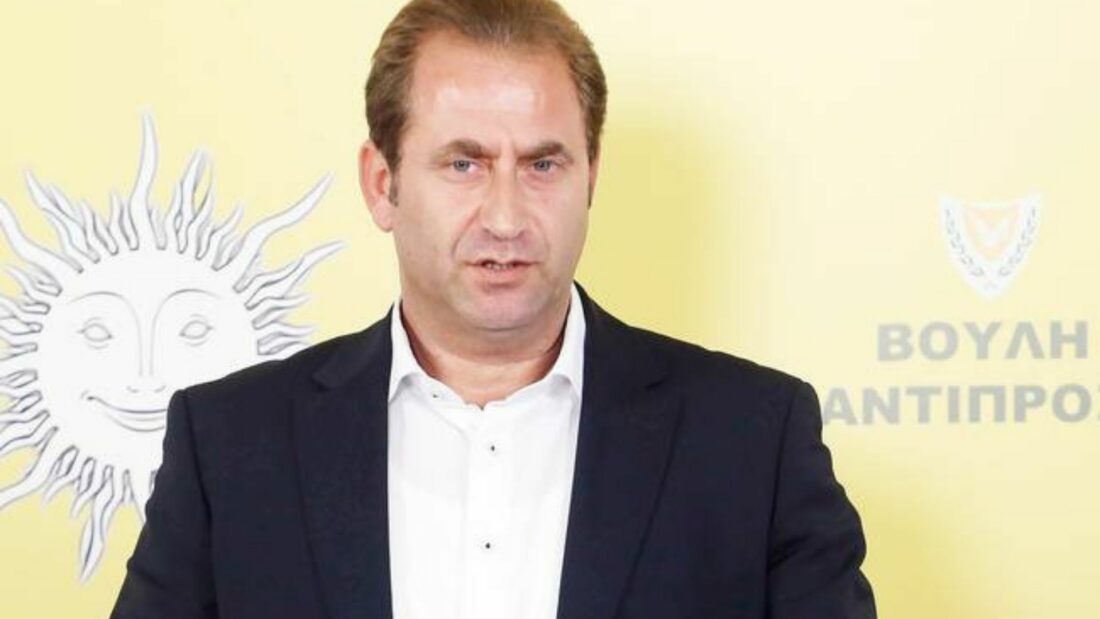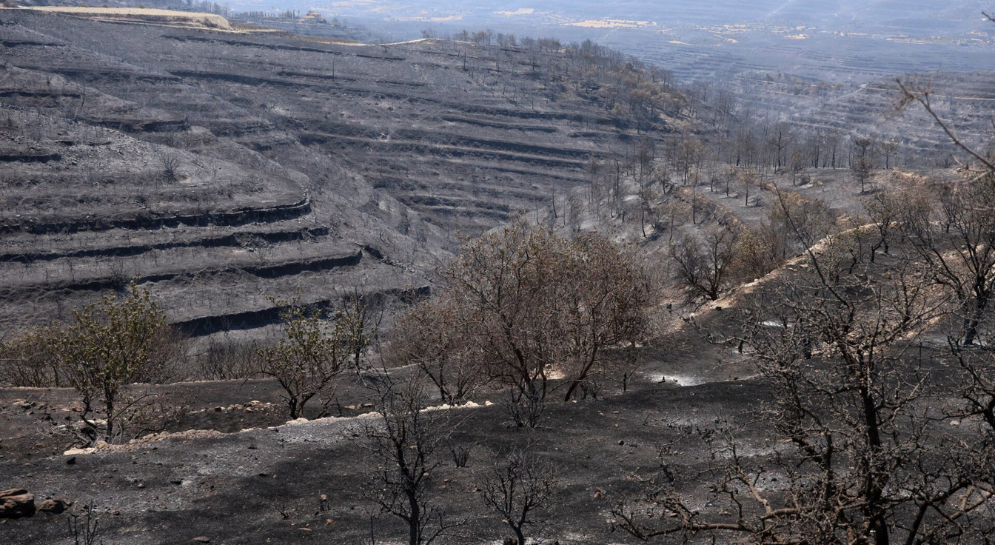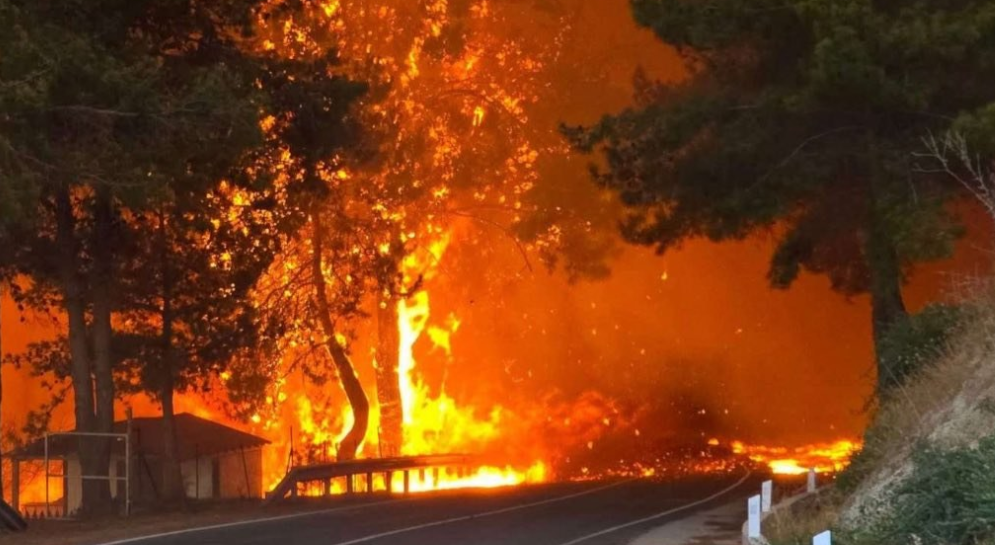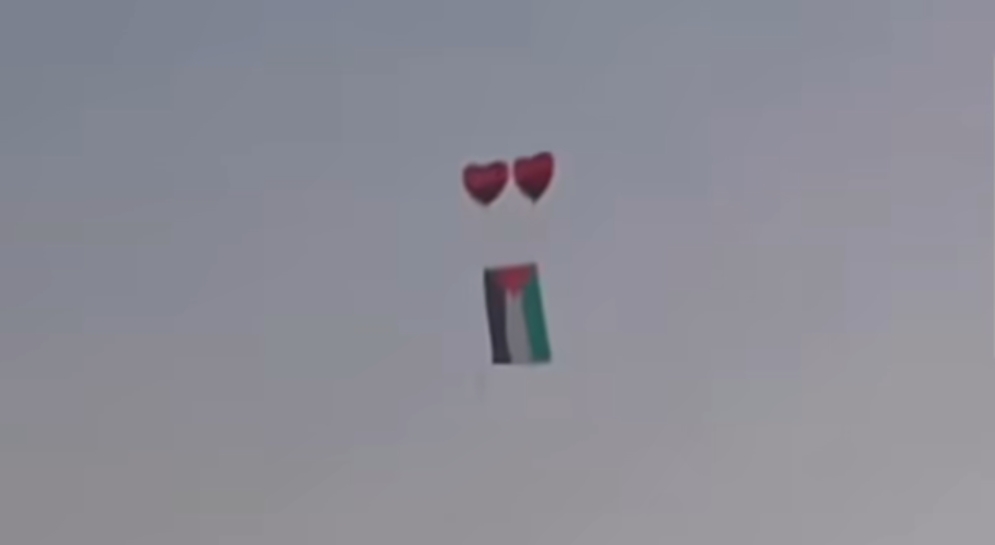
Interview with Giorgos Loucaides, AKEL Political Bureau member and AKEL Parliamentary Group Representative
“We should seek the continuation of the procedure from where it had remained at Crans Montana”
4th April 2021, “EPOHI” weekly newspaper in Greece
How do you assess the conclusions of the European Council Summit? An explicit reference was made to the Cyprus problem, namely that an EU representative will attend the upcoming Geneva five-party meeting.
GL: The EU has been present at the previous conferences as an observer and it will also be present at the forthcoming conference. The EU wants to be present, be informed and monitor the compatibility of what is being discussed or agreed with the European acquis. Of course, the procedure remains within the UN framework and under the good offices of the UN Secretary-General.
As for the Council conclusions, President Anastasiades and the government’s foreign policy have invested a great deal, to the extent that the impression was given that the attempt to impose sanctions on Turkey has become an end in itself. Judging by the results, this policy has evidently for some time been a failure. It resulted in the Cyprus problem not being set as a priority.
AKEL considers that the solution of the Cyprus problem should have been the President’s foremost priority and that sanctions should be viewed as just one of the instruments to achieve this goal. We are critical of that stand too. In every case, the government ruling forces have failed to fulfill their objectives. Instead of imposing sanctions, the EU turned to promoting a positive agenda with Turkey. There is no clear link in this direction between Turkey’s stance on the Cyprus problem with the prospect of activating the EU’s positive agenda, let alone with the activation of sanctions, which can be utilised.
Don’t the Council conclusions, together with the positive statements expressing interest (on the Cyprus problem) by Mr. Blinken and the US President form a positive environment?
GL: For sure, if we compare it with the previous situation where, in reality, we found ourselves in a vicious circle of tension provoked by Turkey’s aggression and illegal actions, either in the Exclusive Economic Zone of the Republic of Cyprus or on the issue of Famagusta with the road map that began to be implemented for its colonalisation. An environment where negotiations are underway is less favourable for Turkey and more favorable for us. Military tension is not in any way favourable for Cyprus in particular. It only serves Turkey’s objectives.
At the negotiating table, we can make use of powerful weapons at our disposal, such as international law and the Resolutions of the UN on the agreed framework for resolving the Cyprus problem, the values and principles of the EU.
At the negotiating table, we can draw more support from the international community, as this was recorded, judging by the result, at Crans Montana. Even Cyprus’ evil demon, with or without quotation marks, the United Kingdom, at Crans Montana, supported the Secretary General’s position for the complete abolition of guarantees, intervention rights, the full withdrawal of the occupying troops and the replacement of the Treaty of Guarantee by a mechanism for implementing the solution, with the informal document that was submitted and which was never discussed, even though it was, I would say 95%, close to the positions submitted by the Greek Cypriot side. So, yes, it is possible that if we handle the situation correctly, we can improve our position in the face of today’s reality.
What is the framework of the positions proposed by AKEL?
GL: What we are proposing is simple, very clear and explicit. We should seek the continuation of the procedure from where it had remained at Crans Montana as requested, for a long time, by the UN Secretary General himself. That is to say, on the basis of the agreed framework of Bi-zonal, Bicommunal Federation, the Guterres Framework, on the basis of the convergences that have been recorded so far and on the basis of a Cypriot ownership procedure which is agreed. The procedure should continue at two parallel tables at the conference on Cyprus. One table will deal with the internal aspect of the Cyprus problem, while the other with its international aspect, in a cross-sectional way. These are the parameters we propose for the continuation of the procedure.
How is the issue of political equality being raised? Is it pending?
GL: For us, the issue of political equality and the effective participation of the Turkish Cypriots, which has been included in a UN resolution since 1991, is resolved and agreed as, accordingly, the UN Secretary General presents it in the Report he submitted in September 2017. That is to say, this issue is defined and agreed within the context of the convergences that were recorded in previous years between the negotiators of the two communities, mainly by the convergences registered by Talat – Christofias, but also subsequently by Akinci – Anastasiades.
Since we are talking about the form of the solution, is the position of Turkey and the leadership of the Turkish Cypriots for two separate states being used as a negotiating tactic or to obstruct the negotiations?
GL: I cannot, of course, speak on behalf of Turkey, nor can I know for sure whether its position is part of a tactical game or whether it will be pursued to the end. I will avoid making any predictions. Let me just say that Turkey appeared before Crans Montana with the same positions up until the initial stage of the procedure and eventually entered the negotiations and managed, with the positions it had expressed, not only not to remain exposed, but was congratulated and praised by UN Secretary General A. Gutierrez in the report he submitted on the stand Turkey took during the Crans Montana conference, but also received praise for its stand from the European Commission that was present with Federica Mogherini, High Representative of the Union for Foreign Affairs and Security Policy and Vice-President of the European Commission. Turkey, back then, not only maneuvered and did not insist on the extreme positions it publicly promoted, but instead acted in such a way that it achieved both its exoneration and received praise, while in contrast the Greek Cypriot side and Mr. Anastasiades were held equally responsible for the deadlock.
Recently we have seen mass demonstrations, protests, etc. even in the occupied areas too. What prospects do you see?
GL: In the occupied territories, the demonstrations were organised by the progressive forces of the Left and centre-left. Essentially, they were demonstrations reacting to the position of Turkey and its chosen one Tatar on the Cyprus problem and the colonalisation of Famagusta. They thus sent out powerful messages in favor of a solution of the Cyprus problem on the basis of what was agreed. These demonstrations also conveyed messages against Turkey’s flagrant interventions in the vote for the assumption of the new Turkish Cypriot leadership, but also against Ankara’s political interventions in almost all areas affecting the life of the Turkish Cypriots.
In the free areas, the mobilizations were about the Anastasiades government’s actions both with regards the Cyprus problem and the partitionist positions the President has flirted with in the past. It is well-known that the President not only agreed to discuss, but he himself proposed in various directions a two-state solution, Confederation.
As a result many people took to the streets, also highlighting other serious issues in their protests. They protested at the regime mentalities and practices of the government, about the corruption it has cultivated and which now reaches up to the highest position of power, to the President himself, his family environment, with a focus on the sale of ‘golden’ passports.
Since DISY and Nikos Anastasiades have been in power, Cyprus has fallen many positions down the table on corruption. But people also took to the streets to protect about the government’s policy on the environment because this government has allowed environmental crimes to be committed. Furthermore, the protests also concerned the institutional racism being promoted in numerous ways by the DISY Government and the protection it offers to the banking system, but also for the problems its policy has created for many social categories.
Some observe that the AKEL hasn’t yet managed to capitalize on the government’s deterioration and the social mobilisation. How are you thinking of addressing this issue?
GL: The polls show that we are growing stronger compared to the previous period and reaching the corresponding percentages of 2016, while ruling DISY is recording a significant fall in its percentages. Surveys show small parties, I would also say populist and/or far-right voices, are growing stronger. Obviously, this is a worry for us.
At the same time, we estimate that there are serious prospects in the two months remaining until the May 30 elections, for us to make use of all the advantages and record an increase in our percentages compared to those of the 2016 elections. We are optimistic that we will further improve the climate by May as these elections will be a prelude to the subsequent Presidential elections.
The stronger AKEL emerges, the greater will the prospect of getting rid of the DISY government be. We will also work to convey our message that the stronger AKEL emerges, as the most consistent and steadfast force of assertion on the Cyprus problem, the stronger will the prospect of its solution be and the strengthening of people’s hopes. Conversely, the stronger AKEL emerges, the greater will its capability and ability be to assert, to be the voice of the workers, pensioners, young people, the vulnerable groups of the population, the people of culture and in general of the many underprivileged people who for eight years have been suffering from the anti-social and authoritarian policies of the DISY Government.
How are the conditions of communication between Greek Cypriots and Turkish Cypriots evolving during the pandemic?
GL: First of all, the vaccines received by the Republic of Cyprus from the EU are distributed in both regions. Communication, of course, has been hampered and has mainly been restricted to online activities. On various occasions we have contact with the Turkish Cypriot progressive forces. We were given, by exception, the opportunity of having contacts with the visit of Andros Kyprianou, General Secretary of the Party, to the occupied areas. He also met with Mr. Akinci and the leader of the Turkish Republican Party. In fact, a joint statement was issued ahead of the Geneva conference. I must say that a number of other activities, of a bi-communal nature, are imminent, providing that the restrictive measures permit it.




